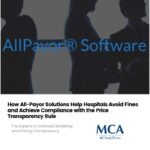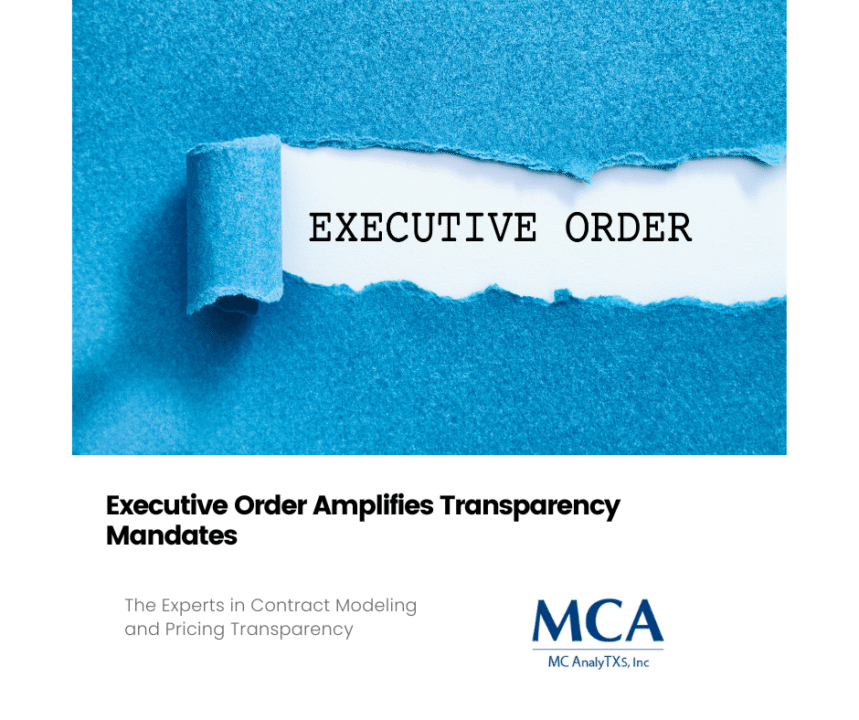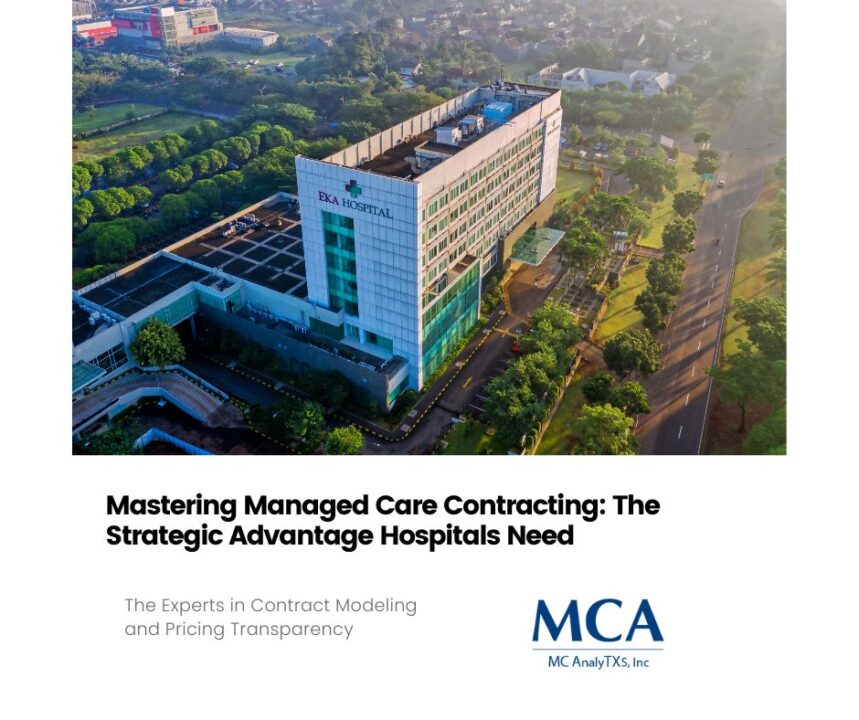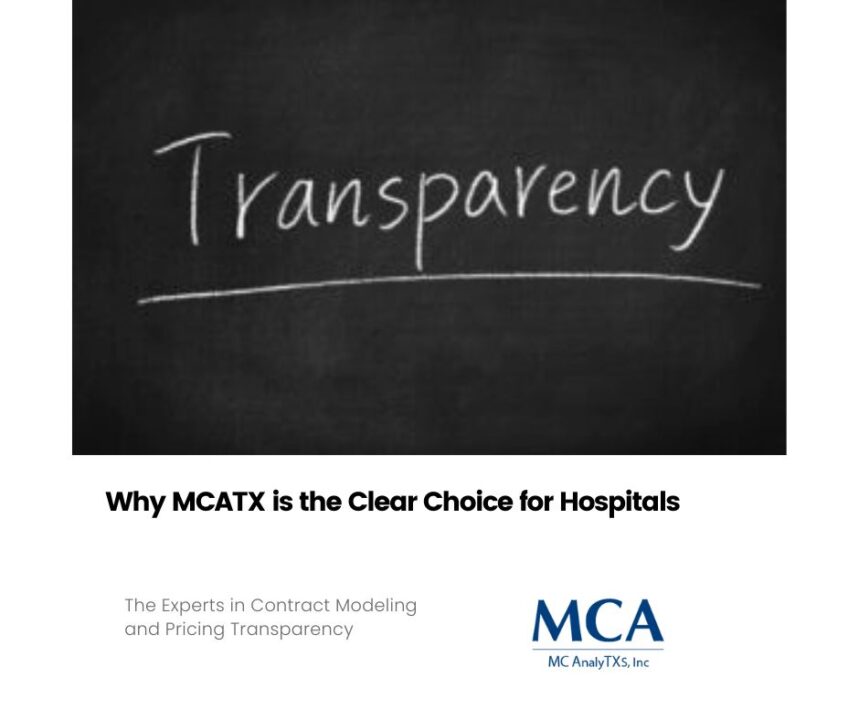

Navigating the Future of Revenue Cycle Management: Key Insights from the ACHE 2025 Congress and HFMA Revenue Cycle Conference
The following insights reflect the perspective of Eric V. Depew, President of MC AnalyTXs , on the recent ACHE 2025 Congress on Healthcare Leadership and the HFMA 2025 Revenue Cycle Conference—two cornerstone events shaping the future of healthcare finance and operations. While our team closely tracked the key discussions and developments from both conferences, Eric V. Depew provided his expert commentary to guide how RCM leaders can interpret, adapt to, and strategically act on the emerging trends facing the healthcare industry today.
The discussions were rich with insights on the current state of RCM, the issues that are holding back financial performance, and the emerging solutions that could help organizations adapt to a rapidly changing landscape. What became clear from both conferences is that RCM leaders must adapt strategically to new financial pressures, compliance changes, and operational inefficiencies to achieve sustainable success.
Key Themes from the ACHE 2025 Congress on Healthcare Leadership
The ACHE Congress focused on the broader leadership challenges in healthcare, with a special emphasis on financial sustainability, cost management, and the integration of clinical care with operational efficiency. For RCM leaders, the key takeaways from the Congress revolved around how tightening budgets and evolving regulations are increasingly affecting hospital revenues and workflows.
- Financial Strain and Cost Containment: Hospitals are under more pressure than ever to maintain operational efficiency while delivering high-quality patient care. As margins grow thinner, it’s crucial for RCM teams to ensure that every aspect of the revenue cycle is functioning at its best to avoid revenue leakage and unnecessary costs.
- Talent Challenges in RCM: As healthcare organizations continue to face a shortage of skilled professionals, hospitals are finding it increasingly difficult to recruit and retain top revenue cycle talent. There’s an urgent need for better training programs and retention strategies to ensure the stability and growth of RCM teams.
- Regulatory Pressures and Compliance: With the introduction of new payer regulations and government mandates, hospitals must stay on top of compliance issues while advocating for fair reimbursements. RCM teams are often on the front lines, handling the complexities of payer relationships and coding compliance.
Insights from the HFMA 2025 Revenue Cycle Conference
The HFMA conference provided a more granular, operational look at the current challenges and opportunities within revenue cycle management. Key topics included denial management, patient payment solutions, and billing accuracy. These challenges are compounded by the complex financial pressures faced by hospitals in today’s healthcare environment.
- Rising Denials and Underpayments: One of the most common pain points discussed was the growing volume of denials and underpayments from payers. Hospitals are struggling to recover denied claims, leading to delayed cash flows and financial strain. There’s a real need for stronger denial management programs and appeals processes that can reclaim lost revenue and optimize cash collections.
- Patient Financial Responsibility: With patients assuming a larger portion of the financial burden, healthcare organizations are seeing a rise in bad debt and lower collection rates. Hospitals need to develop more effective strategies for patient financial counseling, offering clearer payment plans, and improving collection practices to avoid write-offs.
- Billing and Coding Accuracy: Errors in coding and documentation continue to result in substantial revenue leakage. The importance of continuous staff education and training to improve coding accuracy was a key point of discussion, as coding mistakes can directly affect reimbursements and cause costly delays in revenue recovery.
MCA.com’s Role in Addressing These Challenges
At MCA.com, we understand the unique challenges that RCM leaders face today. Our approach has always been to provide practical, tailored solutions that directly address the issues discussed at both the ACHE and HFMA conferences. Hospitals and healthcare systems are operating in a highly complex environment, but there are concrete steps that can be taken to improve financial outcomes and streamline revenue cycle operations.
Here’s how MCA.com can help:
- Optimize Front-End Revenue Cycle Processes – The first point of contact with patients, whether during registration, insurance verification, or prior authorization, is critical to minimizing errors and denials later in the cycle. A proactive approach to these processes helps ensure smoother claim submissions and fewer denials.
- Strengthen Denial Management & Appeals – Denial rates are only increasing, but the revenue lost to these denials doesn’t have to be permanent. By developing a comprehensive denial management strategy and creating a dedicated team to handle appeals, we can help organizations recover revenue that might otherwise be written off.
- Ensure Compliance and Improve Revenue Integrity – As regulatory requirements continue to evolve, it’s essential for hospitals to keep their revenue cycle processes in alignment with compliance standards. Audit programs, staff training, and process improvements help prevent penalties and ensure hospitals are receiving the reimbursements they deserve.
- Patient Financial Engagement and Education – Hospitals must embrace a more patient-centric approach to financial conversations. Clearer financial communication, easy-to-understand payment options, and compassionate patient engagement will help reduce bad debt and increase patient satisfaction.
- Leverage Revenue Cycle Expertise – Hospitals can benefit greatly from partnering with experienced RCM professionals to manage these challenges. MCA.com offers tailored solutions that optimize revenue capture, reduce denial rates, and improve cash flow management, allowing hospitals to focus on delivering quality care while we handle the financial intricacies.
Conclusion
The insights shared at the ACHE and HFMA conferences demonstrate that healthcare organizations face unprecedented challenges in today’s financial climate. However, these challenges also present unique opportunities for RCM leaders to adapt, improve efficiency, and drive financial success. Hospitals that proactively address their revenue cycle inefficiencies will not only improve their financial health but also their ability to provide exceptional care to patients.
At MCA.com, we are committed to helping hospitals navigate these complex challenges with practical, proven strategies that ensure financial stability and operational efficiency. By optimizing revenue cycle processes and implementing best practices in denial management, billing, and patient financial engagement, we help our clients build a more resilient future for their organizations.
It’s time for RCM leaders to seize the opportunity, innovate their processes, and build stronger financial foundations—one step at a time.
Join our next webinar to learn more!





